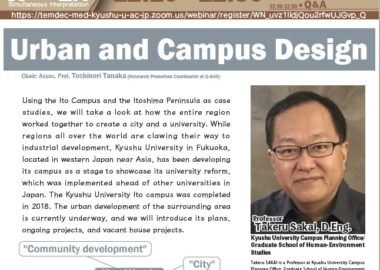Ancient protein analysis revealed that the oldest hominin fossil in Taiwan was derived from a male Denisovan
Lecturer Rikai Sawafuji
Faculty of Social and Cultural Studies
Fukuoka, Japan—An international research team from Japan, Taiwan, and Denmark investigated the ancient protein sequences of Taiwan’s oldest hominin fossil and discovered that it was derived from a male Denisovan individual. The discovery of the Denisovan fossil from Taiwan has revealed that they were widely distributed in Asia. The findings were published in the journal Science.
A fossil mandible named Penghu 1, is estimated to be from an individual who lived 19,000 to 10,000 years ago. The fossil was discovered in 2015 on the seabed of the Penghu Channel and reported as the first and oldest hominin fossil from Taiwan. Penghu 1 has distinct morphological characters and retains archaic features, but its taxonomic identity was unknown.
Attempts were made to extract ancient DNA from this fossil, but these were unsuccessful. In their new paper, an international research team that involved Rikai Sawafuji, a Lecturer from Kyushu University’s Faculty of Social and Cultural Studies, succeeded in sequencing the fossil’s bone and tooth proteins to reveal that Penghu 1 was derived from a male Denisovan. These results have significant implications for human evolutionary history in eastern Asia.
The full release from The Graduate University for Advanced Studies can be found here: https://www.soken.ac.jp/en/news/2025/20250411.html
Research-related inquiries
Rikai Sawafuji, Lecturer
Faculty of Social and Cultural Studies
Contact information can also be found in the full release









